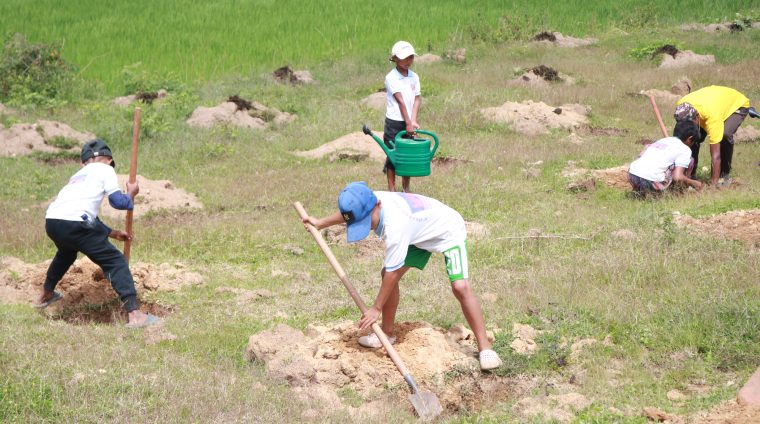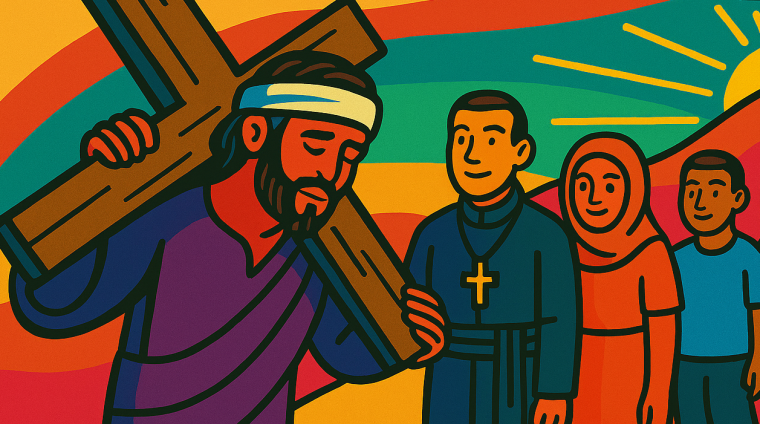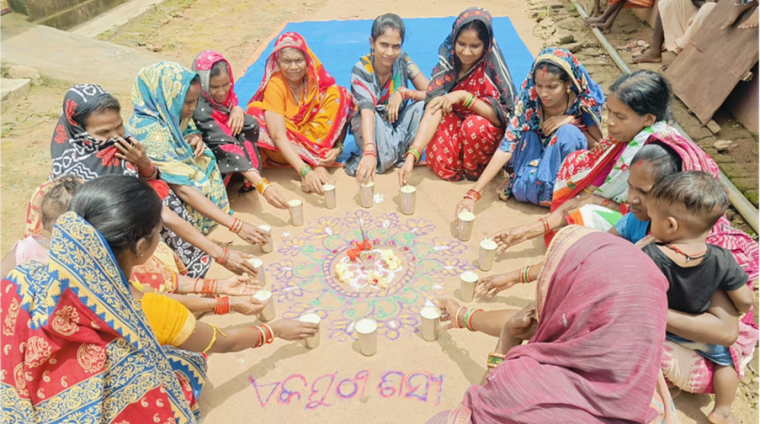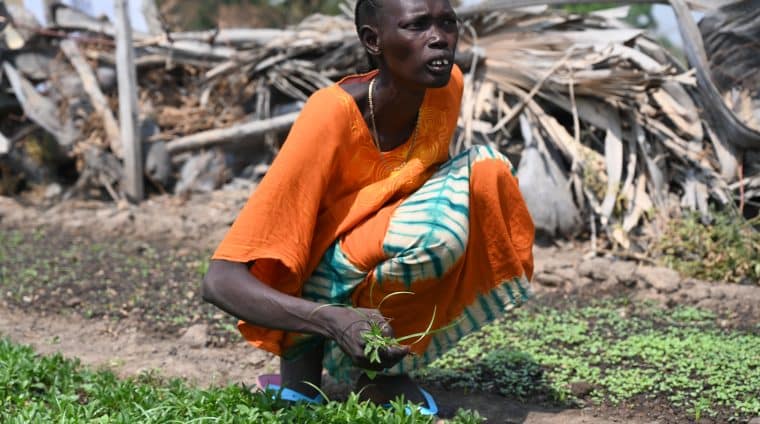This article originally appeared in the magazine ‘Jesuits & Friends’
2024 – the year of the vote. More than 50 countries were set to hold national elections in some form this year, with up to two billion people across the world eligible to take part.
In July, the United Kingdom held its first General Election in five years, with Sir Keir Starmer securing a healthy majority and the Labour Party returning to power for the first time since 2010.
Over in the United States, we witnessed a campaign trail worthy of Hollywood.
White House incumbent Joe Biden dramatically announced he would not stand for re-election following increasing pressure from those around him.
He was replaced by his Vice-President, Kamala Harris – who was bidding to become the first female leader of the US – to go up against former President Donald Trump, who had survived more than one assassination attempt.
Ultimately, Trump scored a decisive victory in November, marking a sensational return to America’s highest office.

But what of the countries in the Global South?
In India, it was assumed that Narendra Modi and his Bharatiya Janata Party (BJP) would maintain their grip on the world’s largest democracy. In reality, while they still received the most support, they lost their majority and were forced to form a coalition to stay in power.
This is seen as a positive for some of the country’s marginalised communities, as a not-so-dominant BJP means they have more chance of having their voices heard.
Dr Joseph Xavier SJ, Director of the Indian Social Institute, explains: “There was palpable breathing of free air among many who felt choked by the anti-poor politics and ideology of the BJP for the past 10 years.
“Mr Modi was cut down to size. The BJP lost the simple majority and had to coax their partners to support him in forming the government. Now, the opposition is stronger, coalitions are back and space for negotiation is a non-negotiable code.”

This is good news for some of the projects supported by Jesuit Missions in India, including Lok Manch, a people’s forum that provides practical support to vulnerable communities.
Recently the organisation has helped a group of women buy a set of new solar-powered sewing machines, secured better food rations for tea workers and rebuilt an entire village that was forced to relocate due to the construction of a dam.
Given Lok Manch is built on holding people in power to account, taking away some control from a hardline ruling party could open up more avenues of opportunity.

We might also see some progress in the campaign, supported by Jesuit Missions, to clear the name of Fr Stan Swamy, an Indian Jesuit who died in custody in July 2021, aged 84.
Fr Stan was arrested in October 2020 on terrorism charges, something he consistently denied.
He was frequently harassed by state institutions and evidence of his wrongdoing was supposedly found on his laptop. According to an investigation by The Washington Post, this material had been planted.
Fr Stan, alongside his co-accused, a group known as the BK-16, was a longstanding defender of the rights of Dalit and Adivasi communities in India.
And Dr Xavier believes there was a clear anti-Modi position taken among those living in areas designated for Adivasi tribes. In Jharkhand state, for example, the BJP was defeated in all such constituencies.
He notes that Kalpana Soren, a Jharkhand politician and wife of jailed chief minister Hemant Soren, declared the election results in her state as “the beginning of taking revenge for the unjustified custodial death of Fr Stan Swamy”.
“The results of the elections give us a message that the power of the masses can challenge ‘There Is No Alternative’ syndrome“
Dr Xavier is hopeful that the community can build on this momentum and wants them to use their voice to fight for change.
“The results of the elections give us a message that the power of the masses can challenge TINA (There Is No Alternative) syndrome,” he says.
“For the time being, it seems a coalition politics that stands for the development of the masses and the protection of democracy can destabilise ideologies.”
Mexico was another country to experience an historic election, with Claudia Sheinbaum becoming the nation’s first female president and its first president of predominantly Jewish heritage.
While Jesuit Missions doesn’t currently work with any projects in Mexico, it does have historic ties with Latin America.
What’s more, Ms Scheinbaum’s victory represents hope for the marginalised, something which should be celebrated and replicated in other parts of the world.

Fr Luis Orlando Pérez Jiménez SJ, a Mexican priest studying at University College London, believes there are a number of key challenges facing the new regime.
He says: “Mexico continues to suffer from high levels of violence, a lack of well-paid jobs and a lack of respect for human rights.
“The new government has the opportunity to change the negative trends that affect the population. It requires intelligence and political will.”
Fr Luis does not imagine the new government will provide more support to migrants from Central America heading up to the US, so the Church will continue with its network of soup kitchens and shelters for those seeking a life elsewhere.
However, he is encouraged by Ms Scheinbaum’s commitment to expanding social programmes, which will lift millions out of poverty.
“[She] also aims to increase public spending in the health sector, which would be good news for most impoverished people who currently lack access to quality medical care,” he adds.
“We must be hopeful for a better world, where problems are fewer and equalities greater”
The examples of election results in Mexico and India suggest there is some anticipation for a fairer, more just world, with greater support for those who need it most.
These are the people who benefit from projects funded by Jesuit Missions, whether that be aid for refugees, the protection of indigenous peoples’ rights, or support for tackling climate change.
It remains early days; new governments rarely make sweeping changes overnight.
And there is a lot to be done. With the World Bank estimating that there are around 700 million people globally living in extreme poverty, addressing this will not come lightly.
There are wars, increasing incidents of extreme weather and places where personal freedoms are heavily restricted.
But we must be hopeful for a better world, where problems are fewer and equalities greater.
That is what elections and democracy can bring about. In 2024, we’ve seen that more than ever.





